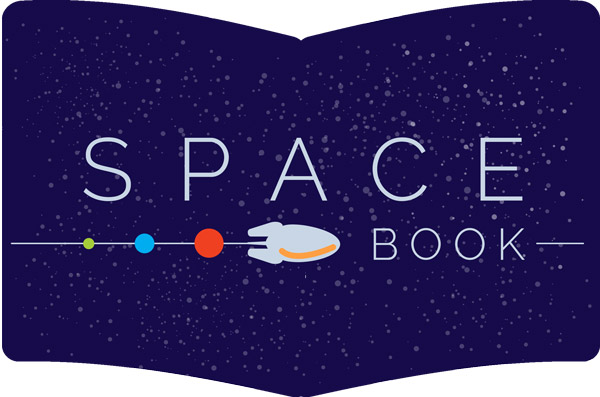
Approximate size comparison of planets in the Solar System relative to each other. Credit: NASA/Lunar and Planetary Institute

Approximate size comparison of planets in the Solar System relative to each other. Credit: NASA/Lunar and Planetary Institute
Many images of the solar system do not do justice to how small the planets are relative to the Sun, or how distant they are from the Sun and each other. The solar system is really mostly empty space.
The Sun is much much bigger than all the planets, in fact, you could fit over a million Earths inside the Sun! The next biggest object in the Solar System is Jupiter, a gas giant planet. Its mass is about 318 times that of the Earth.

A solar eruption captured by SOHO (Solar and Heliospheric Observatory). The Earth is shown here for size comparison. Image credit: SOHO (ESA & NASA)
There are four rocky planets and four giant planets in our solar system. The distance between the planets is large, particularly for the giant planets in our outer solar system. Even our closest cosmic neighbor, the Moon, is 239,000 miles away (that’s about the distance of 30 Earth’s in a row)!
| Planet | Distance from Sun (miles) |
|---|---|
| Mercury | 35,000,000 |
| Venus | 67,000,000 |
| Earth | 93,000,000 |
| Mars | 142,000,000 |
| Asteroid Belt | 297,000,000 |
| Jupiter | 484,000,000 |
| Saturn | 889,000,000 |
| Uranus | 1,790,000,000 |
| Neptune | 2,880,000,000 |
| Pluto (dwarf planet)/ Kuiper belt | 3,670,000,000 |
The planets all orbit the Sun, and their orbits vary in length. The further away the planet is, the longer its orbit. The Earth takes 365 days to orbit the Sun, whereas Mars takes 687 days. This means that because their orbits are different, the two planets are closer together at certain times, and further apart at others. When Earth and Mars are in close approach (their nearest point to each other in orbit), the distance between them is about 54 million km. With a fast spacecraft like New Horizons, this journey would take about 6 months (with New Horizons traveling at speeds of around 36, 373 miles per hour!).

Orbits of Mars and Earth around the Sun. At closest approach, it would take around 6 months to travel to Mars from Earth with the New Horizons spacecraft. Credit: LCO
To travel to near the edge of the Solar System where Pluto lies, about 3,670,000,000 miles away, would take New Horizons around 10 years!
Try our related activities (in the side menu) to help get an idea of the relative distances between the planets. Some other fun things to try include finding your age and weight on other planets.
